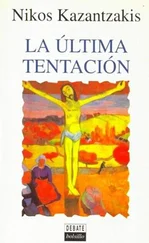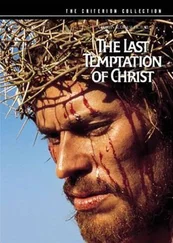Nikos Kazantzakis - Zorba The Greek
Здесь есть возможность читать онлайн «Nikos Kazantzakis - Zorba The Greek» весь текст электронной книги совершенно бесплатно (целиком полную версию без сокращений). В некоторых случаях можно слушать аудио, скачать через торрент в формате fb2 и присутствует краткое содержание. Жанр: Современная проза, на английском языке. Описание произведения, (предисловие) а так же отзывы посетителей доступны на портале библиотеки ЛибКат.
- Название:Zorba The Greek
- Автор:
- Жанр:
- Год:неизвестен
- ISBN:нет данных
- Рейтинг книги:3 / 5. Голосов: 1
-
Избранное:Добавить в избранное
- Отзывы:
-
Ваша оценка:
- 60
- 1
- 2
- 3
- 4
- 5
Zorba The Greek: краткое содержание, описание и аннотация
Предлагаем к чтению аннотацию, описание, краткое содержание или предисловие (зависит от того, что написал сам автор книги «Zorba The Greek»). Если вы не нашли необходимую информацию о книге — напишите в комментариях, мы постараемся отыскать её.
Zorba The Greek — читать онлайн бесплатно полную книгу (весь текст) целиком
Ниже представлен текст книги, разбитый по страницам. Система сохранения места последней прочитанной страницы, позволяет с удобством читать онлайн бесплатно книгу «Zorba The Greek», без необходимости каждый раз заново искать на чём Вы остановились. Поставьте закладку, и сможете в любой момент перейти на страницу, на которой закончили чтение.
Интервал:
Закладка:
The stars were multiplying in the heavens, and they were all hard, fierce, scornful and pitiless towards man.
We no longer spoke. We were both gazing with terror at the sky. Every second new stars lit up in the east and spread the conflagration.
We arrived at our hut. I had not the slightest desire to eat, and sat on a rock by the sea. Zorba lit the fire, ate, was about to come to sit beside me, but changed his mind and lay on his mattress and fell asleep.
The sea was dead calm. Beneath the volley of shooting stars the earth also lay motionless and silent. No dog barked, no nightbird shrieked. It was a stealthy, dangerous, total silence, composed of thousands of cries so distant or from such depths within us that we could not hear them. I could only discern the pulsing of my blood in my temples and in the veins of my neck.
The song of the tiger! I thought, and shuddered.
In India, when night falls, a sad, monotonous song is sung in a low voice, a slow, wild song, like the distant yawn of a beast of prey-the song of the tiger. Man's heart flutters and seeks an outlet as he waits in tense expectation.
As I thought of this fearful song, the void in my breast was gradually filled. My ears came to life, the silence became a shout. It was as if the soul itself were composed out of this song and were escaping from the body to listen.
I stooped, filled my palm with sea water, moistened my brow and temples. I felt refreshed. In the depths of my being, cries were echoing, threateningly, confused, impatient-the tiger was within me and he was roaring.
All at once I heard the voice clearly. It was the voice of Buddha.
I started walking rapidly along the water's edge, as if I wished to escape. For some time now, when alone at night and silence reigned, I had been hearing his voice-at first sorrowful and plaintive, like a dirge; then, becoming angry, scolding and imperative. It kicked within my breast like a child when the time has come for it to leave the womb.
It must have been midnight. Black clouds had gathered in the sky, large drops of rain fell onto my hands. But I paid no heed. I was plunged into a burning atmosphere; I could feel a flame flickering from both my temples.
The time has come, I thought, with a shudder. The Buddhist wheel is bearing me away; the time has come for me to free myself from this miraculous burden.
I returned swiftly to the hut and lit the lamp. When the light fell on Zorba, his eyelids twitched, he opened his eyes and watched me bending over the paper and writing. He growled something which I did not catch, turned brusquely towards the wall and fell fast asleep once more.
I wrote quickly, I was in a hurry. Buddha was completely ready within me and I could see it issuing from my brain like a blue ribbon covered with symbols. It Was coming forth rapidly, and I tried desperately to keep up with it. I wrote; everything had become simple, very simple. I was not writing, I was copying. A whole world was appearing before me, composed of compassion, renunciation and air: Buddha's mansions, the women in the harem, the golden coach, the three fateful encounters-with the old man, with the sick man, with death; the flight, the ascetic life, the deliverance, the proclaiming of salvation. The earth was covered with yellow flowers; beggars and kings donned saffron robes; the stones, the trees and the flesh became lighter. Souls became vapor, the vapor became spirit, and the spirit became nothing… My fingers were beginning to ache, but I would not, I could not stop. The vision was passing swiftly and vanishing; I had to keep up with it.
In the morning Zorba found me asleep, with my head on the manuscript.
6
THE SUN was already well up in the sky when I awoke. The joints of my right hand were stiff from holding the pen so long. I could not close my fingers. The Buddhist storm had broken over me and left me tired and empty.
I stooped to pick up the pages scattered on the floor. I had neither the strength nor the desire to look at them. As if all that sudden rush of inspiration had been merely a dream which I no longer wished to see imprisoned in words and debased by them.
It was raining softly, silently. Zorba, before leaving, had lit the brazier, and I spent the whole morning coiled up in front of the fire, with my hands over it, eating nothing, motionless, just listening to the first rain of the season, softly falling.
I was thinking of nothing. Rolled up in a ball, like a mole in damp soil, my brain was resting. I could hear the slight movements, murmurings and nibblings of the earth, and the rain falling and the seeds swelling. I could feel the sky and the earth copulating as in primitive times when they mated like a man and woman and had children. I could hear the sea before me, all along the shore, roaring like a wild beast and lapping with its tongue to slake its thirst.
I was happy, I knew that. While experiencing happiness, we have difficulty in being conscious of it. Only when the happiness is past and we look back on it do we suddenly realize-sometimes with astonishment-how happy we had been. But on this Cretan coast I was experiencing happiness and knew I was happy.
That immense thirsting, dark-blue sea extended right to the shores of Africa. A very hot south wind often blew, the Livas, which comes from the distant, burning sands. In the morning the sea gave off a scent like that of a watermelon; at noon it was covered with haze and still, its slight undulations being like immature breasts; in the evening it sighed and was the color of the rose, of the aubergíne, of wine, a deep blue.
In the afternoon I amused myself by filling my hand with fine light-colored sand and letting it run, hot and soft, through my fingers. The hand-an hour-glass through which our life runs away and is lost. It was losing itself. I looked at the sea, heard Zorba, and felt my temples bursting with happiness.
I remembered how, one day, my niece, Alka, a little girl of four, while we were looking into a toy-shop-it was New Year's Eve-she turned to me and made this extraordinary remark: "Uncle Ogre, I'm so glad I am growing horns!" I was startled. What a miracle life is and how alike are all souls when they send their roots down deep and meet and are one! For I at once recalled a Buddha carved in ebony which I had seen in a distant museum. Buddha had freed himself and was bathed in supreme joy after seven years of agony. The veins on either side of his forehead had so swollen that they had burst out of the skin and become two vigorous, curling horns, like steel springs.
The fine rain stopped falling towards the end of the afternoon, the sky became clear. I was hungry and was delighted to be hungry, for now Zorba would come and light the fire and begin the daily ritual of cooking.
"Another of these things that never leave you alone," Zorba often said, as he set the pot on the fire. "It's not only woman, curse her-that's an endless affair-there's eating, too."
On this coast I felt for the first time what a pleasant thing it could be to have a meal. In the evening Zorba lit the fire between two stones and did the cooking. We started eating and drinking, the conversation became animated. I at last realized that eating was a spiritual function and that meat, bread and wine were the raw materials from which the mind is made.
After his day's hard work, before eating and drinking, Zorba was dull, his remarks peevish, and I had to drag words out of him. His, movements were listless and awkward. But as soon as he had stoked up the engine, as he put it, the whole grinding, weary machine of his body came to life once more, got up speed and started to work again. His eyes lit up, he was brim full of memories, wings grew on his feet and he danced.
"Tell me what you do with the food you eat, and I'll tell you who you are. Some turn their food into fat and manure, some into work and good humor, and others, I'm told, into God. So there must be three sorts of men. I'm not one of the worst, boss, nor yet one of the best. I'm somewhere between the two. What I eat I turn into work and good humor. That's not too bad, after all!"
Читать дальшеИнтервал:
Закладка:
Похожие книги на «Zorba The Greek»
Представляем Вашему вниманию похожие книги на «Zorba The Greek» списком для выбора. Мы отобрали схожую по названию и смыслу литературу в надежде предоставить читателям больше вариантов отыскать новые, интересные, ещё непрочитанные произведения.
Обсуждение, отзывы о книге «Zorba The Greek» и просто собственные мнения читателей. Оставьте ваши комментарии, напишите, что Вы думаете о произведении, его смысле или главных героях. Укажите что конкретно понравилось, а что нет, и почему Вы так считаете.












